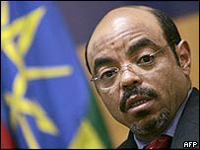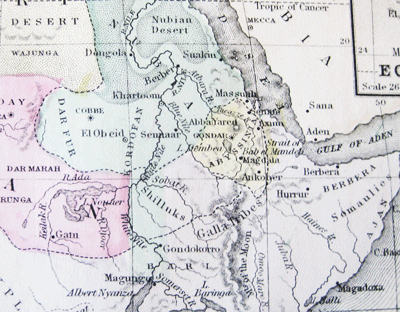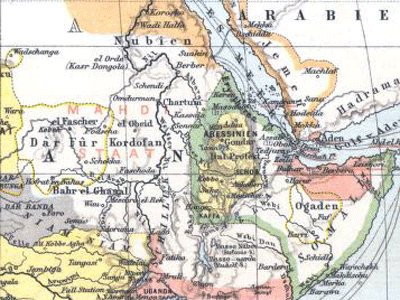 World Bank Ethiopia country director Ken Ohashi has a letter in the New York Review of Books responding to Helen Epstein’s charge that the Bank is supporting tyranny (which we also blogged). Ken’s letter defends World Bank aid to Ethiopia:
World Bank Ethiopia country director Ken Ohashi has a letter in the New York Review of Books responding to Helen Epstein’s charge that the Bank is supporting tyranny (which we also blogged). Ken’s letter defends World Bank aid to Ethiopia:
There are concerns about the overall governance of the country, efficiency and fairness of resource use, the risk of dependence on aid, and protection of basic human rights, as Ms. Epstein points out. We recognize these concerns, and development partners in Ethiopia take them seriously.
We start, however, with a belief that in every country people want to be self-reliant and prosperous, and to develop a transparent, accountable, effective, and efficient governance system. Ethiopia is no exception. Our task, as an external development partner, is to support that innate tendency.
However, building institutions, public and private, that assure every citizen’s right to and effective delivery of public services takes a long time; indeed, it never ends, as we can see even in the most industrialized countries. Changes are incremental, and at times they may suffer serious setbacks. It is, therefore, crucial that development partners work with the long-term process of change, always in support of it, not in control of it (which is impossible in any case).
Fascinating defense, Ken! You are saying the World Bank sees all countries with an “innate tendency” towards better governance (nicely conflating citizens’ aspirations and the frequently opposite tendencies of those in power). You can then use an all-powerful Gerund like “building institutions” to suggest that you and the autocrat of Ethiopia are benevolently working together on that “innate tendency.” The Gerund Defense implies that any horrible tyrant can be supported under the assumption that this tyrant is merely a temporary stage in a country “in transition to democracy,” part of an “innate tendency” towards “building institutions.”
The alternative to the disingenuous Gerund Defense is to take a look at the current regime’s political, economic and human rights track record. Two weeks ago, Prime Minister Meles Zenawi’s party and its allies swept the elections, winning over 99 percent of parliamentary seats. Election observers from the EU found that the electoral process "fell short of certain international commitments, notably regarding the transparency of the process and the lack of a level playing field for all contesting parties."
A report from Human Rights Watch criticized the ruling party’s “total control of local and district administration” which they have used to “monitor and intimidate individuals at a household level, punish and undermine the livelihoods of citizens who do not abide by the ruling party, and create a climate of fear that suppresses freedom of expression and opinion.”
The government’s centralized control of land ownership, banks, the internet and even the mobile telecom industry has stymied enterprise and depressed economic growth, while the regime is accused of using the food aid upon which 1/6th of the population depend as a political tool to reward supporters and punish those who dare to join opposition parties.
The US State Department went even further, citing reports of “unlawful killings, torture, beating, abuse and mistreatment of detainees and opposition supporters by security forces, often acting with evident impunity,” in their Human Rights report published last year.
At least you are being consistent. After Meles and his security forces perpetrated election fraud, jailed opposition leaders, and killed over 200 student demonstrators in 2005, the World Bank continued to provide aid. We have it from a reliable source that your predecessor as Ethiopia Country Director won an award for keeping the lending going despite all the hardship Bank staff inconveniently had to endure.
Sorry, Ken, it’s hard to drown out these realities even with your clever use of the classic Gerund Defense.
 From Aid to Equality
From Aid to Equality







